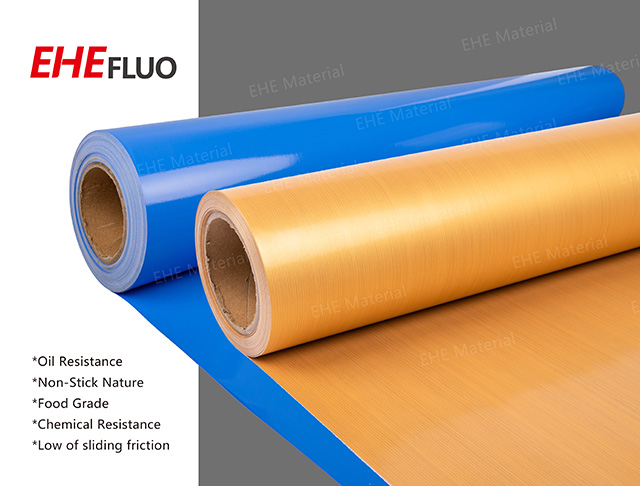Silicone Baking Mats: The Sustainable, High-Performance Solution for Modern Baking Operations
Update time: 2025-04-22 Views: 706
Description
In an era where efficiency, sustainability, and food safety are non-negotiable, silicone baking mats have emerged as a game-changer for commercial bakeries, confectionery manufacturers, and even home-based food entrepreneurs. These reusable, non-stick mats are revolutionizing traditional baking processes by eliminating waste, reducing costs, and ensuring consistent product quality.

SILICONE BAKING MAT
This comprehensive guide dives into the science, benefits, and strategic advantages of silicone baking mats, empowering global buyers to make informed decisions for their operations.
What Are Silicone Baking Mats?
Silicone baking mats are flexible, heat-resistant sheets made from food-grade platinum silicone, engineered to withstand temperatures ranging from -40°C to 250°C (-40°F to 482°F). Unlike disposable parchment paper or aluminum foil, these mats provide a permanent, eco-friendly surface for baking, roasting, and candy-making.
Key Material Properties:
Non-Toxic & FDA/LFGB Certified: Free from BPA, lead, and phthalates.Ultra-Non-Stick Surface: No need for oils or sprays, ensuring clean release of delicate pastries and sticky candies.
Durability: Resistant to cuts, tears, and warping, with a lifespan of 2,000+ uses under proper care.
Why Silicone Baking Mats Outperform Traditional Alternatives
Cost Savings
A single silicone mat replaces 2,000+ sheets of parchment paper, slashing annual consumable costs by up to 90%.
Environmental Impact Reduction
Eliminate paper waste and aluminum disposal—critical for brands targeting eco-conscious consumers or complying with ESG (Environmental, Social, Governance) goals.
Enhanced Product Consistency
Even heat distribution prevents uneven browning, while measurement guides (e.g., grid patterns) enable precise portioning for cookies, macarons, or crackers.
Multifunctional Use
Beyond baking, these mats serve as:
Kneading surfaces for doughLiners for freezing pre-portioned foods
Protective layers during chocolate tempering
HACCP & Food Safety Compliance
Seamless surfaces inhibit bacterial growth and simplify cleaning, meeting strict hygiene standards in facilities certified for ISO 22000 or BRCGS.Industry Applications: Where Silicone Baking Mats Shine
Commercial Bakeries: Mass production of cookies, breads, and croissants with zero sticking.
Chocolate & Confectionery: Ideal for molding candies, cooling pralines, or preventing sugar crystallization.
Frozen Food Production: Line trays for pre-baked frozen goods to retain moisture and shape.
Health-Food Brands: Oil-free baking aligns with low-fat or vegan product positioning.
Choosing the Right Silicone Baking Mat Supplier: 6 Critical Factors
Material Purity: Opt for platinum-cured silicone over peroxide-cured alternatives (no odor or chemical leaching).
Certifications: Verify FDA (US), LFGB (EU), REACH, and Halal/Kosher compliance for global market access.
Customization Options:
Printed logos or measurement gridsTailored sizes (e.g., full-sheet pans, half-sheets, or custom dimensions)
Anti-slip textures or reinforced edges for industrial machinery.
Thermal Performance: Ensure mats retain flexibility in extreme cold (e.g., blast freezing at -40°C).
Supplier Expertise: Prioritize manufacturers with 5+ years in food-grade silicone product engineering.
Scalability: Confirm ability to handle bulk orders (MOQs from 500–10,000 units) with JIT delivery options.
Case Study: How a German Bakery Chain Saved €18,000 Annually
A mid-sized bakery replaced parchment paper with 200 custom-sized silicone mats across 10 locations. Results:
€0.02 per batch vs. €0.25 previously (cost per use).
12-ton annual waste reduction, enhancing their “Zero Waste” branding.
15% faster production due to eliminated paper replacement downtime.
Maintenance Best Practices to Maximize ROI
Cleaning: Handwash with mild detergent or dishwasher-safe (check supplier guidelines).
Storage: Roll or lay flat—avoid sharp folds to prevent creases.
Inspection: Replace mats showing surface cracks or stiffness (indicates material degradation).
Future Trends: Smart Silicone Mats & Industry 4.0 Integration
Innovators are embedding technology into silicone mats, such as:
QR Codes: Track batch data or provide cooking instructions to end consumers.
Temperature Sensors: Sync with IoT-enabled ovens for real-time baking analytics.
Antimicrobial Coatings: Extra protection for high-risk environments like hospitals or airlines.
Silicone baking mats are no longer a niche product but a strategic investment for forward-thinking food businesses. By partnering with a certified supplier offering advanced customization and compliance guarantees, manufacturers can achieve operational excellence while aligning with global sustainability trends.
Previous: Toaster Conveyor Belts: The Ultimate Guide for Industrial Baking Efficiency
Next: What Are Teflon Seamless Belts?



